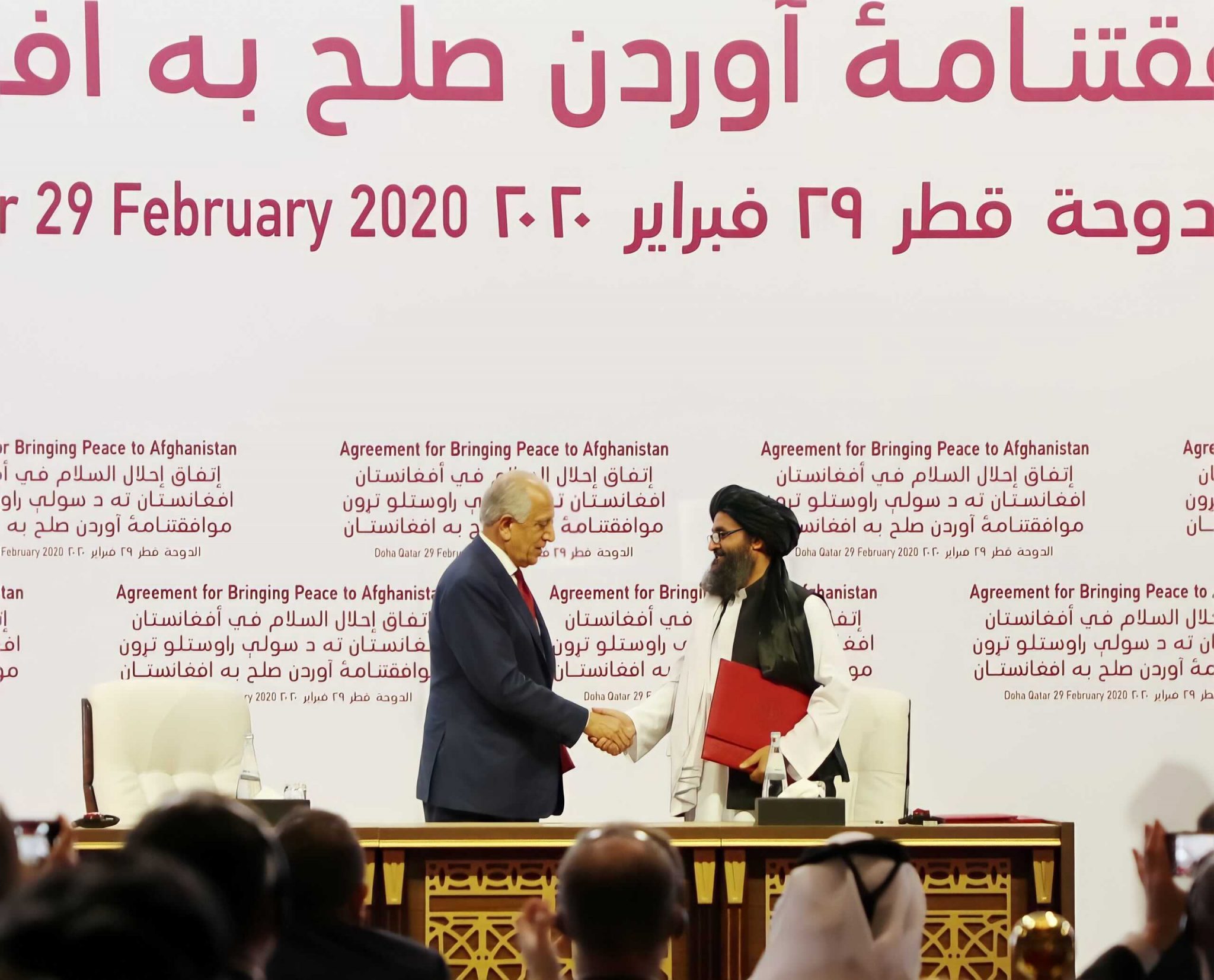The US troop withdrawal is now “halfway” complete, with officials raising concerns over the fate of hostages.
Representatives from the European Union [EU] held meetings in Qatar with senior members of negotiating teams involved in the ongoing Afghan peace process, a senior official said on Tuesday.
“EU stays present in Doha as I leave after talks with senior members from each negotiation team about the #AfghanPeaceProcess. Neither side sees a military solution. Qatar plays a crucial role and offered insightful meetings with senior officials,” tweeted Tomas Niklasson, Acting Special Envoy of the EU for Afghanistan.
On Wednesday, the Taliban announced meetings with the Afghan government in Qatar where the two parties discussed fast tracking the stalled Afghan peace process, with the group’s spokesman, Mohammad Naeem confirming the two sides had reached “several agreements”.
Very pleased to have joined #EU Special Representative for #Afghanistan🇦🇫 @tomas_niklasson during his visit in Doha. #Qatar is a constructive & reliable partner in advancing the #AfghanPeaceProcess.
🇪🇺🤝🇶🇦@MBA_AlThani_ https://t.co/R7AQMCZgcl— Cristian Tudor (@CristianTudorEU) June 8, 2021
The statement comes following a four-day visit to Kabul by Washington’s peace envoy to Afghanistan Zalmay Khalilzad, who ended his trip on Tuesday.
According to a statement by the US Embassy in Kabul, Zalmay and his delegation -including representatives from the National Security Council, Department of Defence and USAID – agreed with their Afghan counterpart “that maintaining political unity was essential during this period of transition”.
“The US inter-agency team reaffirmed America’s commitment to an enduring partnership with Afghanistan and the Afghan people, including through security and civilian assistance, and they consulted Afghan leaders regarding the transition underway in our cooperation,” added the statement.
Read also: US envoy to Afghanistan set to return to Qatar for peace talks
Khalilzad is also expected to visit Qatar following his Afghan trip, where he is set to meet members of all negotiating teams involved in the Afghan peace process as part of continuous efforts to “make tangible progress” in the stalled talks.
“In Doha, Ambassador Khalilzad will continue to encourage both sides to make tangible progress towards a political settlement that protects the gains of the last two decades,” read a statement released by the US State Department earlier this week.
During his Doha visit earlier in March, Khalilzad proposed holding the Istanbul meeting, which was postponed due to the Taliban’s refusal to attend, after it was scheduled to take place in April.
Rising concerns
Meanwhile, there have been rising concerns over a US troop withdrawal from Afghanistan that is now halfway complete, according to statements made earlier this week by Commander of the US Central Command General Kenneth Mckenzie.
“We’re about halfway finished with it [troop withdrawal]; we are on pace and it’s continuing very smoothly. It is our intention to continue to be able to go after Al-Qaeda and ISIS from over the horizon, from other locations in the theatre, and we’re working now with friends in the region to establish that capability as we go forward,” he told a special briefing on Monday, using an acronym for the Islamic State militant group.
Among the concerns raised this week was the fate of Americans held hostage overseas and their return home.
On Wednesday, the James W. Foley Legacy Foundation released a report to detail the status of the US government’s efforts to ensure the release of hostages held in foreign countries, including those in Afghanistan.
“They also fear that the further reduction of US physical presence in the country is an erosion of the leverage needed to make progress on resolving these cases,” said the report.
“It is perceived by some advocates that securing the release of these hostages was not made a precondition for any settlement during the peace talks in Doha, Qatar with the Taliban.”
Among the hostages in Afghanistan is Mark Frerichs, a contractor from Lombard, Illinois, who is believed held by the Taliban-linked Haqqani network. Paul Overby, an American writer who disappeared in Afghanistan in 2014 is also among the names mentioned.
According to an AP report, Khalilzad told Congress that he repeatedly demanded the release of Frerichs and “enlisted the support of senior Qatari and Pakistani officials on his behalf”.
There have also been worries over the increase of the Taliban’s control over several Afghan provinces.
According to a recent UN report, experts at the intergovernmental organisation said that the land control comes as part of the Taliban’s apparent attempts to strengthen its military position in Afghanistan.
The report warned that the US and NATO troop withdrawal, scheduled to be completed on September 11th, will further challenge Afghan forces “by limiting aerial operations with fewer drones and radar and surveillance capabilities, less logistical support and artillery, as well as a disruption in training”.
It also said that the Taliban has been responsible for the majority of Kabul’s targeted assassinations, which “appear to be undertaken with the objective of weakening the capacity of the government and intimidating civil society”.
“Taliban rhetoric and reports of active Taliban preparations for the spring fighting season indicate the group is likely to increase military operations for 2021, whether or not a spring offensive is announced,” the UN report said.
Qatar has been facilitating the ongoing Afghan Peace Process since September last year with hopes to establish peace and stability in Kabul after decades of conflict. However, no major progress has yet to be reported.
Follow Doha News on Twitter, Instagram, Facebook and Youtube







